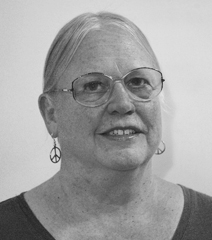QUESTION: So many things are happening in the world today that make me sad. What makes me sadder is I’m in my 70s, have a limited income and my health is declining, all of which prevent me from jumping in when the need arises. Up until I was in my late 60s and a situation could use my help, I volunteered right away. Now I feel helpless and, worse still, useless.
Any suggestions that could help an older person feel useful are welcome.
~ Sad Old Goat
Dear Sad Old Goat,
I can identify with you and your feelings of limitation because of your age and physical condition. I am up in years also and am not able to do as much as in the past, but I still find less strenuous things I can do to help my neighbors, friends and family. Little things, like when I’m out for a walk, taking a neighbor’s newspaper from their driveway and putting it on their front porch or offering to walk their dog or do watering in their yard. So I would encourage you to take a fresh look at who you are and what lesser things you could do to still help and serve.
No, you are not useless. Now, you are right; there are many sad and distressful things in our world today that weigh heavy on our hearts. One thing we can all do and you can do even with your limited physical condition is pray and talk to God about your concerns for our world. I would encourage you in that direction.
May you be blessed and encouraged.
 Pastor Tim Beck
Pastor Tim Beck
snoopytpb@gmail.com
Dear Sad Old Goat,
We are living in turbulent times with much to cause sorrow and growing
old is not for sissies, as the iconic posters read. I’m also in my 70s and have been a volunteer in several capacities since my retirement in
2001. The last few years I’ve had to cut back on physical tasks in
exchange for “sit down” jobs.
Consider the things you love to do and how you can still participate but in a different way. Being around children always cheers me up. You could check around. Foster Grandparents might be a good fit for you. Local schools or libraries may have opportunities to read to youngsters. There might be a neighbor who could use some help learning a skill you have, such as gardening in our local climate. Even if you can’t trust your health to make a regular time commitment you can attend school performances. Music, dance and theater students from elementary school through college have events open to the public, usually at a very affordable cost or even free. No performer likes to see empty seats. You can fill one up with a happy smile and enthusiastic applause.
School teams in many sports need an audience for games, too. You could provide the encouragement that turns a shy kid into a super star!
Another thing to consider is the use of media. Maybe writing letters to the editor on the troubling things going on in the world would be a good outlet for your talents. Experience matters; share yours in the hopes of saving some millennials and middle-aged folks from repeating actions that have failed in the past. Perhaps you can find some old friends on Facebook or other social media. It’s fun to catch up after losing track for a few years. You might be able to help an old friend in some way, even if it’s just sharing memories.
I hope we both can age gracefully.

QUESTION: My husband and I are having a difficult time explaining death to our 5-year-old (I’ll call him Jimmy). His grandmother, who he loved and spent a great deal of time with from the time he was born, passed away. Then our dog Pansy died from cancer. We told him Nana went to heaven and Pansy went over the Rainbow Bridge to be with other dogs that had died. He cried and we cried with him. Anytime he wants to talk about Nana or Pansy, we listen.
What concerned us was his recent comment that things you love are taken away from you because you’re bad. We asked him where he got that idea and he said school. We told him that’s absolutely not true, but we’re not sure we were convincing. What more can we do to help him get over his grief?
~ Concerned Parents
Dear Concerned Parents,
Your question could not have come at a more perfect time, considering the amount of grief and loss the world is experiencing right now. And so many of those grieving are children. Many children have lost parents, teachers and whole families in devastating floods, hurricanes and earthquakes. And now with the most recent tragedy of the mass shooting in Las Vegas. From the time of our birth, we are taught about life – how to behave, how to be successful, how to deal with responsibilities. But we are not taught how to deal with death.
There are no classes in school that teach our children “how to deal with grief” or answer the age old question, “What is death?” In some older cultures around the world, death is accepted as simply another part of life. It is accepted and celebrated as a transition to a new way of being. Here in America, the tendency is to believe that death is scary and is something that happens because something has gone wrong. It is seen as shocking, upsetting and unnatural. Maybe it was because of a poor diet? Poor genetics? Or, even worse, just plain bad luck? Whatever your spiritual belief system is, kids can usually see through an answer that doesn’t make sense to them. Where is this “heaven?” And this “Rainbow Bridge” you talk about? To a child, it sounds like just another make-believe story. And yet, the death and sadness feel very real to them.
I think that even for a 5-year-old keeping it simple is best. Telling our children that we don’t understand everything about life, and death, is okay. It’s real. It’s honest. I highly recommend a wonderful book by Leo Buscaglia, Ph.D., called “The Fall of Freddie The Leaf.” Freddie is a leaf on a tree, watching the seasons change, and finally he experiences death as he sees the other leaves fall off and “die.” Freddie’s leaf friend, Daniel, reassures Freddie that everything is part of life, and life always continues. Even under the snow, where the leaves have fallen, the new buds are getting ready for spring. And each life has been a part of that whole life.
You both seem to be very loving parents. Your son will eventually find his way to his own understanding of the meaning of life and death. For now, keep listening to him, loving him and reassuring him, without feeling the need to explain the mystery. Kids are more connected to true understanding than we think they are. Focus on the love in his heart for his Nana and Pansy that will always be there. Talk about them, with joy, at family gatherings. Look at old pictures, feel all of the feelings that come, savor each precious moment together, knowing that love never dies.
Rev. Karen Mitchell
karen@karenmitchellmusic.com
Dear Concerned Parents,
You have now graduated into one of the most important parts of raising a human being. The reality that everything that has ever lived will die is as basic to our existence as the seasons or the night and day.
Nevertheless, explaining to a child about the loss of loved ones, moving away of friends or the broken heart that will some day visit them, is never easy.
I think given your situation and age of your child that you made a good choice for the time being. I also think that the issue of punishment or retribution for a bad act, and hence the loss that ensues, is being nurtured in your child and you are right to intervene.
First, once we love it is up to us to hold onto this gift. Loving is one of the, if not the most, powerful aspect of our human condition. It is in fact the power of love that has moved mountains and changed the landscape of the great religions of the world. Once we love, we have the ability to hold onto the love for all time. No one can take Nana away from Jimmy’s heart. No one can take the love shared between Jimmy and Pansy away. In fact, once we love we can carry the soul or being with us everywhere we go for all time!
The discussion about rules, proper behavior modifications and so-called punishments is a very different issue. I believe parents and schools should be on the same page about these practices. I believe that it is the job of the school and teachers to support healthy learning opportunities and that behaviors that aren’t welcomed in school are learning and teachable moments. Jimmy will have to learn that what you do at home isn’t necessarily what the school will do but he is old enough to understand that this is how his family handles things and these are the rules of school. I believe he will come to grips with this very real life situation. When in Rome (or in this case school), rules and laws of the land are there to support everyone.
I wish you well with the ongoing life reality that we all will say goodbye and we all will find ourselves in places with rules but, at the end of the day, all of the love and all of our values that we hold dear will reside in our hearts all the days of our lives.
Blessings to you all,

Rev Gordon Clay Bailey
